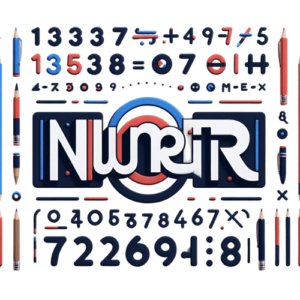In today’s digital age, data security is paramount. As cyber threats become more sophisticated, traditional encryption methods may no longer suffice. This is where Artificial Intelligence (AI) steps in, revolutionizing data protection with its advanced capabilities.
The Role of AI in Data Encryption
AI enhances data encryption through several innovative techniques:
- Pattern Recognition: AI algorithms can analyze vast amounts of data to identify patterns and anomalies. This capability allows for more accurate detection of potential security breaches and unauthorized access attempts.
- Predictive Analytics: By leveraging machine learning models, AI can predict future security threats based on historical data. This proactive approach enables organizations to implement preemptive measures to strengthen encryption protocols.
- Adaptive Encryption: Unlike static encryption methods, AI-powered systems can dynamically adjust encryption keys and algorithms in response to evolving threats. This adaptive encryption ensures continuous protection against new vulnerabilities.
Advantages of AI-driven Encryption
Implementing AI in data encryption offers significant advantages:
- Enhanced Security: AI’s ability to detect intricate patterns and anomalies enhances overall data security, making it more challenging for cybercriminals to breach sensitive information.
- Improved Efficiency: Automated encryption processes powered by AI streamline security operations, reducing human error and operational costs associated with manual encryption methods.
- Scalability: AI-driven encryption solutions are scalable, capable of handling large volumes of data across diverse digital environments without compromising performance.
Real-World Applications
Several sectors benefit from AI-enhanced data encryption:
- Financial Services: Banks and financial institutions use AI to safeguard transactions and customer data from fraudulent activities.
- Healthcare: AI-driven encryption ensures the confidentiality of patient records and medical research data, complying with stringent regulatory standards.
- E-commerce: Retailers utilize AI-powered encryption to protect customer payment information and personal data during online transactions.
Future Trends and Considerations
As AI continues to evolve, future trends in data encryption may include:
- Quantum Computing: AI may play a crucial role in developing encryption methods resilient to quantum computing threats.
- Privacy Regulations: Adhering to global privacy regulations such as GDPR and CCPA requires robust AI-driven encryption solutions to protect consumer data.
Conclusion
AI represents a paradigm shift in data encryption, offering unparalleled security and efficiency in safeguarding digital assets. By harnessing AI-driven encryption technologies, organizations can mitigate cybersecurity risks and uphold trust in an increasingly interconnected world.
In conclusion, integrating AI into data encryption strategies is not just a technological advancement but a strategic imperative for organizations aiming to secure their data assets effectively.




